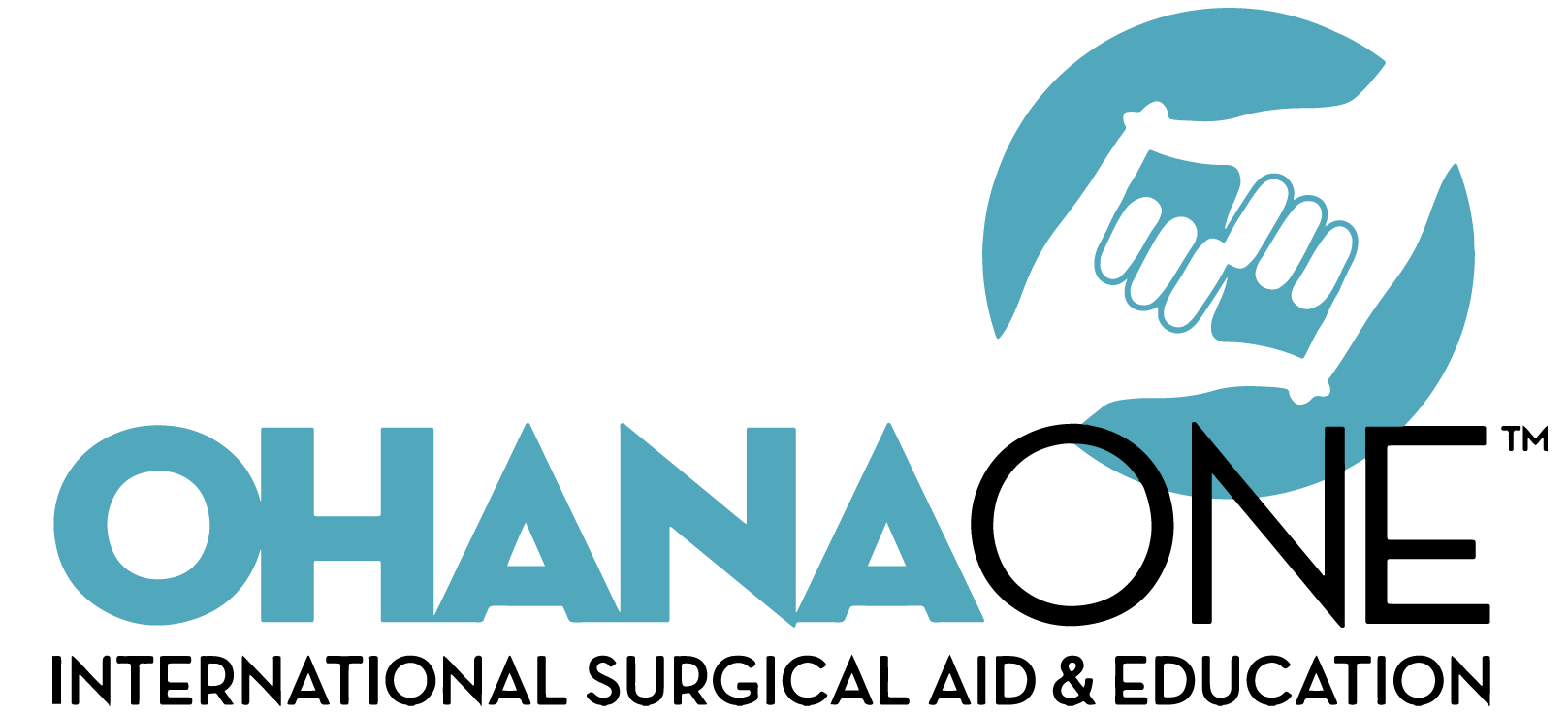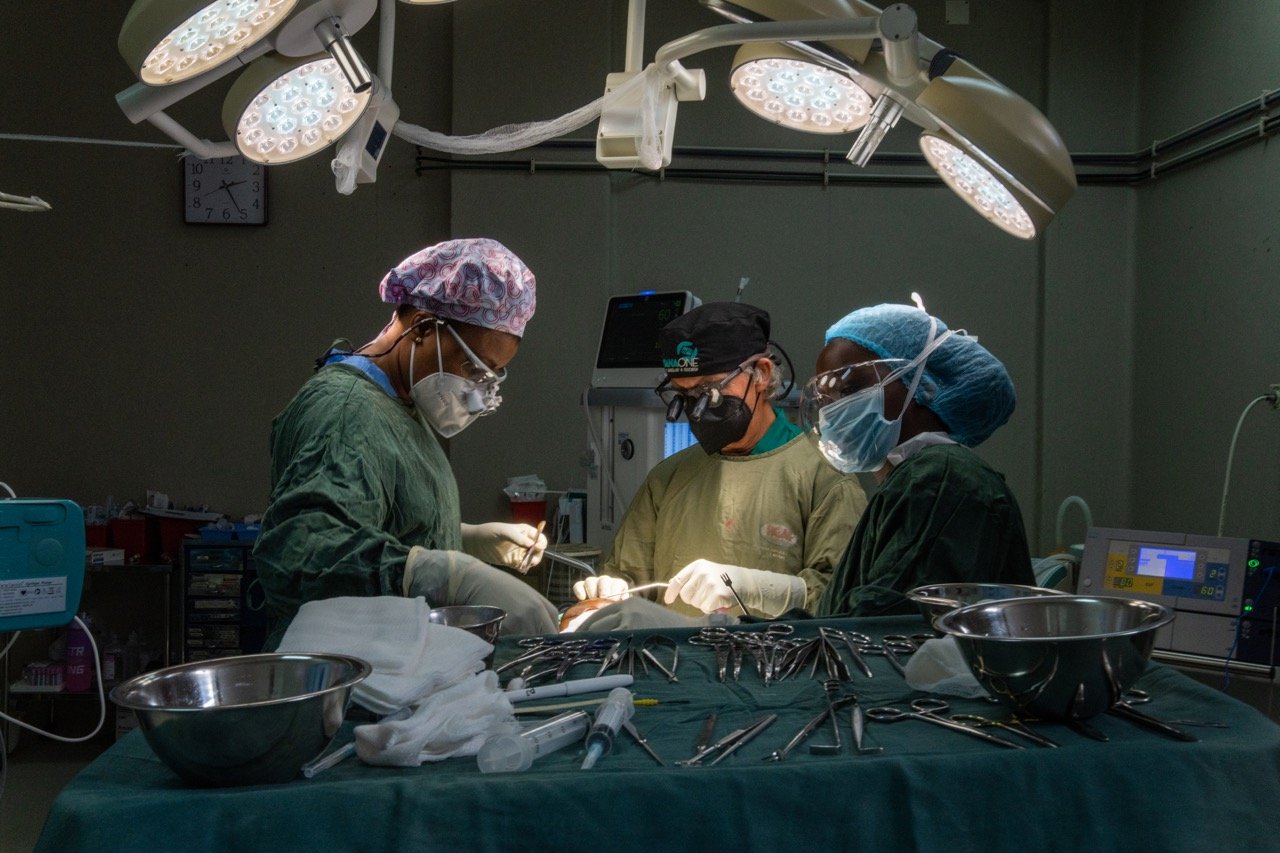It is estimated that currently more than 1.7 billion children and adolescents worldwide do not have access to necessary surgical care. This massive proportion of the global population is primarily located in low- and middle-income countries where less than 3% of the pediatric population has access to basic life-saving surgical care.1 This disparity in access is felt heavily across the African continent, where 42% of the population are children. Limitations in healthcare infrastructure, financial and geographic barriers to care, and a pronounced shortage of surgeons with advanced training all contribute to an unavoidable grim outlook for many patients. Globally, the shortage of surgeons is felt most strongly in Africa: Africa has the lowest number of specialist surgeons in the world (0.5 per 100,000 residents to Europe’s 36.2 ).1–3
This dearth of specialists translates into tragic outcomes for vulnerable pediatric patients across the continent. Repair of gastroschisis (a birth defect where there is a hole in the abdominal wall) is a common procedure that when performed on infants by specialists in high-income countries has a low mortality rate of 2.0%. Due to limited access to specialist training for the operation, the infant mortality rate for this same operation in sub-Saharan Africa is 75.5%. The prognosis for the more complex procedures required for childhood cancers and trauma care are worse still, despite the ingenuity and bravery of the surgeons on the front-line of local hospitals.4–7
To mend this unacceptable divide in health equity, it is clear that additional measures must be taken to improve access to advanced surgical training for surgeons on the frontline. Global studies have demonstrated that improving access to surgical training and subsequent enrichment of the density of the local pediatric surgical workforce translates into significantly increased odds of surgical survival.4
Increasing the availability of physicians with the specialist skills needed to treat complex pediatric cases is a challenging task that requires a scalable and highly accessible platform for advanced surgical education. The traditional models of surgical mentorship utilized in high-income countries falter in regions where many surgeons treating pediatric patients have no specialist pediatric training. Likewise, the traditional surgical outreach model while highly impactful in the short-term, does not always facilitate the lasting transfers of knowledge required for ongoing improvements in care.

One approach that has risen to prominence for navigating the many barriers to this key knowledge transfer is remote surgical training. Ohana One was founded by Dr. David Kulber, Dr. Michele Dee, and Kylie Tanabe PA-C with the mission of establishing long-term sustainable surgical training programs utilizing mentorship relationships and advanced technology to elevate and expand safe surgical care in resource-scarce locations. Since the organization’s inception, remote surgical training has been key tool for facilitating access to experienced surgical mentorship where it would otherwise be impossible via the organization’s direct outreach.
Remote surgical training is revolutionizing global healthcare by breaking down barriers that have historically limited access to specialized knowledge. This approach enables surgeons worldwide to connect with expert mentors who would otherwise be inaccessible for in-person, same-room mentorship. It transcends geographic and resource limitations, fostering an international network of collaboration and continuous learning. Beyond enhancing technical skills, remote mentorship plays a crucial role in reducing physician burnout—providing essential support, guidance, and professional connection in what can otherwise be an isolating field.
Ohana One is leading this transformation by partnering with 33 NGOs across Africa, equipping 92 surgeons with specialized training through mentor-mentee partnerships. The impact of this work extends far beyond individual trainees—each surgeon trained has the potential to change the lives of thousands of patients while also passing on critical skills to other local surgeons, creating a ripple effect of improved surgical care in their communities.
Ohana One is committed to ensuring that all surgeons, regardless of their specialty, location, or available resources, have the knowledge and training they need to provide life-changing care. By strengthening the global surgical community through mentorship and innovation, we are closing the gap in surgical access and ensuring that every patient—wherever they are and whatever their needs—receives the highest standard of care.
1. Mullapudi B, Grabski D, Ameh E, et al. Estimates of number of children and adolescents without access to surgical care. Bull World Health Organ. 2019;97(4):254-258. doi:10.2471/BLT.18.216028
2. Ng-Kamstra JS, Philipo GS, Obayagbona KI. Paediatric surgery outcomes in Africa: a call for urgent investment. The Lancet. 2024;403(10435):1425-1427. doi:10.1016/S0140-6736(24)00320-9
3. El Vilaly MA salam, Jones MA, Stankey MC, et al. Access to paediatric surgery: the geography of inequality in Nigeria. BMJ Glob Health. 2021;6(10):e006025. doi:10.1136/bmjgh-2021-006025
4. Gajewski J, Pittalis C, Borgstein E, et al. Critical shortage of capacity to deliver safe paediatric surgery in sub-Saharan Africa: evidence from 67 hospitals in Malawi, Zambia, and Tanzania. Front Pediatr. 2023;11:1189676. doi:10.3389/fped.2023.1189676
5. Kushner AL, Groen RS, Kamara TB, et al. Assessment of Pediatric Surgery Capacity at Government Hospitals in Sierra Leone. World J Surg. 2012;36(11):1. doi:10.1007/s00268-012-1737-3
6. Frimpong-Boateng K, Edwin F. Surgical leadership in Africa – challenges and opportunities. Innov Surg Sci. 2019;4(2):59-64. doi:10.1515/iss-2018-0036
7. The Need for Children’s Surgical Care Prioritisation in National Surgical Care Policies: A Systematic Review of National Surgical Obstetric and Anaesthetic Plans (NSOAPs) in Sub-Saharan Africa - ScienceDirect. Accessed February 27, 2025. https://www.sciencedirect.com/science/article/pii/S0022346823006504





Leave a Comment